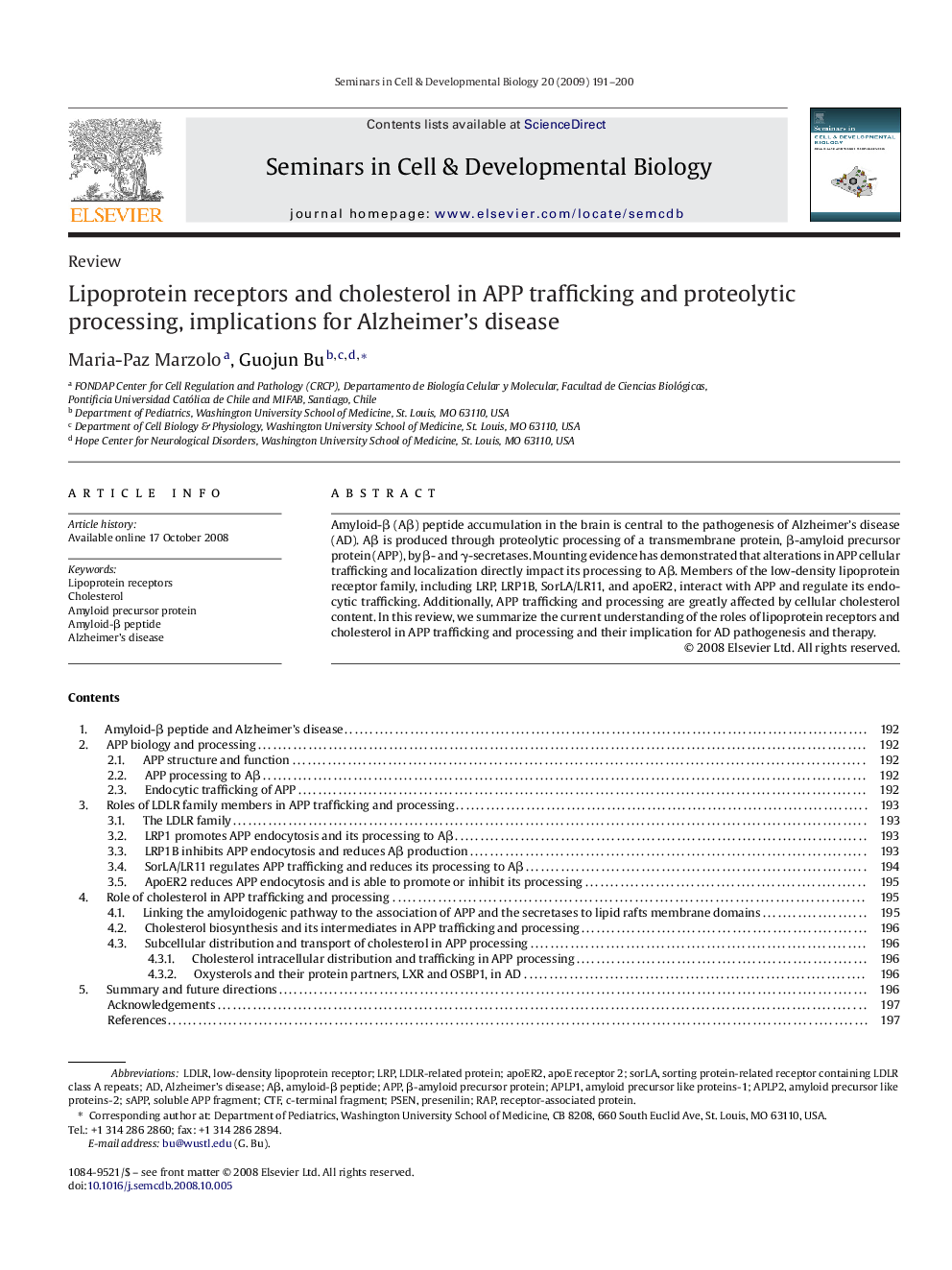| Article ID | Journal | Published Year | Pages | File Type |
|---|---|---|---|---|
| 2203242 | Seminars in Cell & Developmental Biology | 2009 | 10 Pages |
Amyloid-β (Aβ) peptide accumulation in the brain is central to the pathogenesis of Alzheimer's disease (AD). Aβ is produced through proteolytic processing of a transmembrane protein, β-amyloid precursor protein (APP), by β- and γ-secretases. Mounting evidence has demonstrated that alterations in APP cellular trafficking and localization directly impact its processing to Aβ. Members of the low-density lipoprotein receptor family, including LRP, LRP1B, SorLA/LR11, and apoER2, interact with APP and regulate its endocytic trafficking. Additionally, APP trafficking and processing are greatly affected by cellular cholesterol content. In this review, we summarize the current understanding of the roles of lipoprotein receptors and cholesterol in APP trafficking and processing and their implication for AD pathogenesis and therapy.
